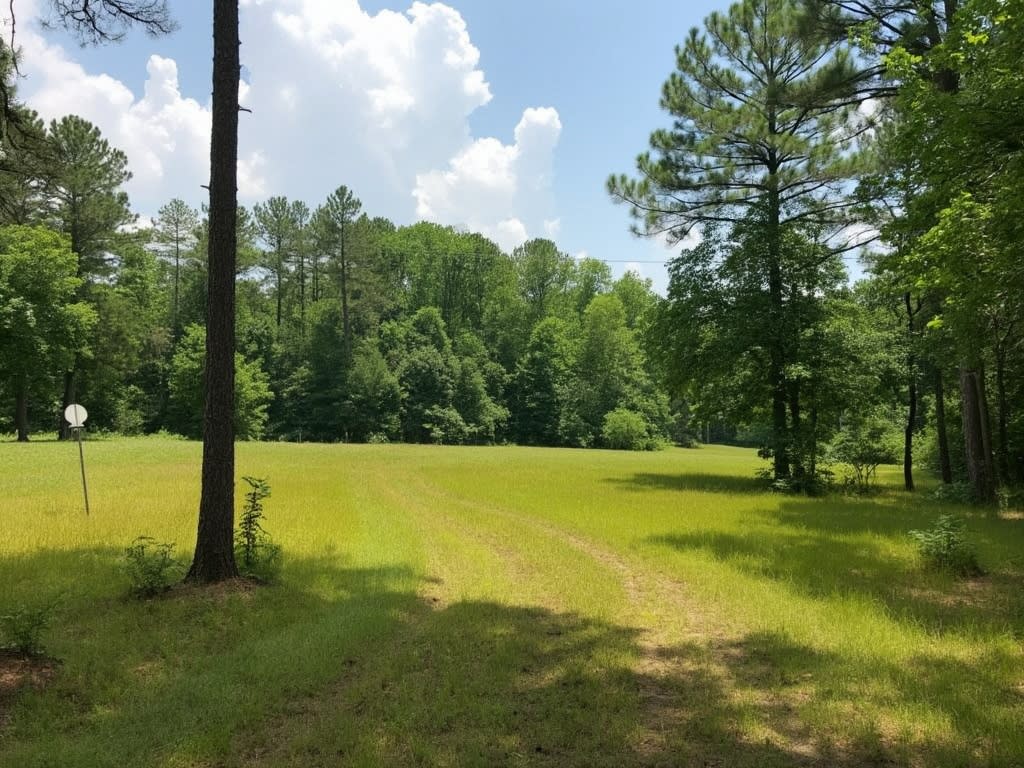Property sales in South Carolina involve specific legal steps, key documentation, and critical decisions throughout the sales journey. Property owners must handle title checks and tax obligations while selecting their preferred selling method, all within state guidelines.
Key Takeaways
- Professional title verification and searches stand as crucial initial steps before listing land in South Carolina
- Tax calculations rely on fair market value, assessment ratio, and millage rate, varying between residential (4%) and commercial (6%) properties
- Sellers need essential paperwork including property deeds, tax records, disclosure forms, and current land surveys
- Three selling methods exist: real estate agents (6-10% commission), cash buyers, or For Sale By Owner
- Closing costs span 2-5% of the sale price, covering title searches, insurance, deed recording, and escrow fees
Understanding Your Property’s Legal Status
Title and Ownership Verification
A clear property title stands as the foundation for selling land in South Carolina. I recommend starting with a professional title search through a certified title company to spot any ownership issues. This search reveals existing liens, unpaid taxes, or easements that could block your sale.
Here’s what you’ll need to verify:
- Property deed records showing clear ownership chain
- Tax payment history for the past 5-7 years
- Existing easements or restrictions on the land
- Outstanding liens or judgments against the property
If you’ve inherited the land, you’ll need to go through probate court first. This involves filing as executor and getting court approval to sell. A real estate attorney can help clear ownership disputes, remove outdated liens, and ensure your property meets all legal requirements for selling land for cash in South Carolina. They’ll also guide you through any needed documentation to prove rightful ownership.
Valuation and Tax Considerations
Tax Calculations and Professional Guidance
South Carolina uses a specific formula to determine property taxes on land sales. I calculate property tax by multiplying the fair market value by the assessment ratio, then multiplying that result by the millage rate. This creates your final tax obligation.
Several key tax factors affect your land sale:
- Assessment ratios vary based on property type – residential land sits at 4%, while commercial property reaches 6%
- Millage rates change by location and municipality
- Capital gains tax applies to profits from your sale, with special rules for inherited property
- Property assessments must happen every 5 years per state law
- Estate tax could impact your sale if the property’s part of an inheritance
I recommend connecting with a tax professional who specializes in South Carolina real estate. They’ll help structure your sale to maximize tax benefits while ensuring compliance with state and federal regulations. A professional can identify potential deductions, explain capital gains implications, and guide you through assessment requirements.
Tax planning makes a significant difference in your final profit. Getting expert help early lets you make smart decisions about timing your sale and handling any inheritance or estate tax situations that might affect the transaction.
Property Preparation and Documentation
Essential Documentation Steps
Selling land in South Carolina starts with collecting vital paperwork. I recommend gathering your property deed and recent tax records first – these show clear ownership and payment history. Property disclosures need careful attention, as South Carolina law requires sellers to reveal known defects or issues.
Here’s what you’ll need to prepare:
- Current property deed showing clear title
- Past three years of property tax records
- Completed seller’s disclosure forms
- Recent property survey with boundary markers
- Zoning certificates and land use permits
A professional land survey helps verify exact boundaries and can spot potential encroachment issues. Consider basic property improvements like clearing overgrown areas or marking boundaries to boost appeal. Online valuation tools through sites like Zillow or Redfin provide initial pricing insights, but local market conditions should guide your final asking price.

Choosing Your Sales Approach
Understanding Your Sales Options
I recommend three main paths to sell your South Carolina land: hiring a real estate agent, selling to a cash buyer, or listing it as For Sale By Owner (FSBO). Each option fits different situations and goals.
Benefits of Each Method
Cash buyers offer distinct advantages for landowners needing a quick sale. Here’s what you can expect:
- No repair requirements or inspections
- Zero commission fees or closing costs
- Closing times as fast as 7-14 days
- Simple paperwork process
A real estate agent handles marketing and negotiations but charges 6-10% commission. FSBO gives you complete control and saves on commission, but requires you to:
- Market the property independently
- Handle showings and negotiations
- Prepare legal documentation
- Set competitive pricing
- Create detailed property listings with photos and descriptions

Finalizing the Sale
Mortgage and Title Requirements
Before completing your land sale, I’ll help you settle any existing mortgages through proper lender coordination. You’ll need to request a payoff statement from your current lender, which shows the exact amount needed to clear the loan. The closing agent will handle direct communication with your lender to ensure accurate payoff figures.
Closing Process and Escrow Services
The closing process requires specific documentation and professional services. Here are the key elements needed to secure your transaction:
- A title search report confirming clear ownership
- Title insurance protecting against future claims
- Deed preparation and recording fees
- Settlement statement detailing all costs
- Escrow account for holding funds
Using an escrow service adds protection for both parties during the transaction. They’ll hold funds and documents until all conditions are met. Your closing costs typically range from 2% to 5% of the sale price, covering title searches, insurance, deed recording, and escrow fees.
I recommend working with a title company or real estate attorney to manage these final steps. They’ll ensure proper document filing with local authorities and coordinate fund transfers between parties. This creates a clear paper trail and meets South Carolina’s legal requirements for property transfers. By avoiding common mistakes when selling land in South Carolina, you’ll ensure a smoother transaction.


